A puzzle related to key concepts of the NAIDOC theme.
After a class discussion about the NAIDOC theme “Heal Country!”, students complete this Find-a-word which focuses on keywords related to the topic. Difficulty level: medium.
Updated: 07 Jun 2021
A puzzle related to key concepts of the NAIDOC theme.
Non-Editable: PDF
Pages: 1 Page
Years: 3 - 4
Tag #TeachStarter on Instagram for a chance to be featured!
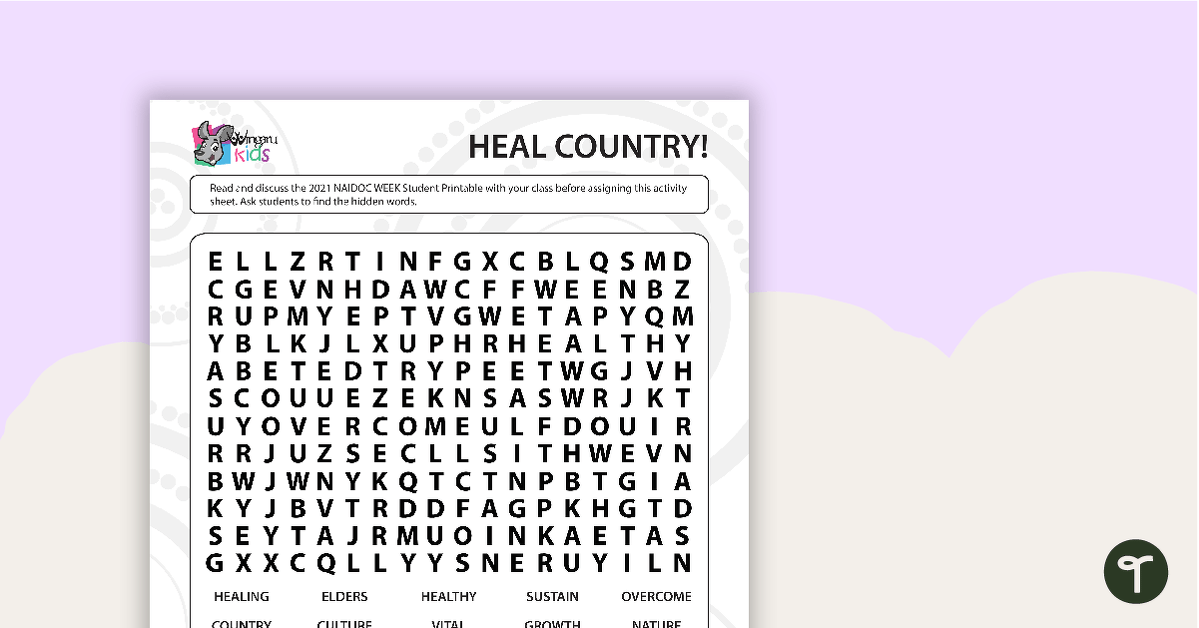
A puzzle related to key concepts of the NAIDOC theme.
After a class discussion about the NAIDOC theme “Heal Country!”, students complete this Find-a-word which focuses on keywords related to the topic. Difficulty level: medium.

Wingaru Kids provides quality content created by Aboriginal people in an engaging format so that students are excited to learn authentic and accurate knowledge about Aboriginal people.
Would you like something changed or customised on this resource? While our team makes every effort to complete change suggestions, we can't guarantee that every change will be completed.
Did you spot an error on this resource? Please let us know and we will fix it shortly.
Are you having trouble downloading or viewing this resource? Please try the following steps:
If you are still having difficulty, please visit the Teach Starter Help Desk or contact us .
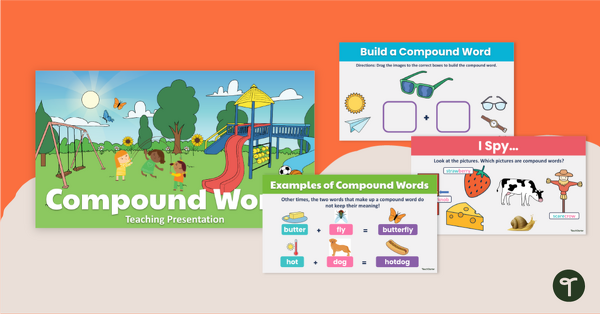
Teach your students to identify, combine, and read compound words with an interactive Compound Words teaching presentation.
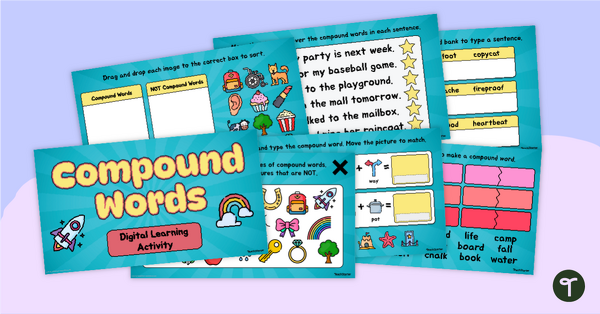
Use a digital learning activity to help your students practise identifying, reading, and creating compound words.
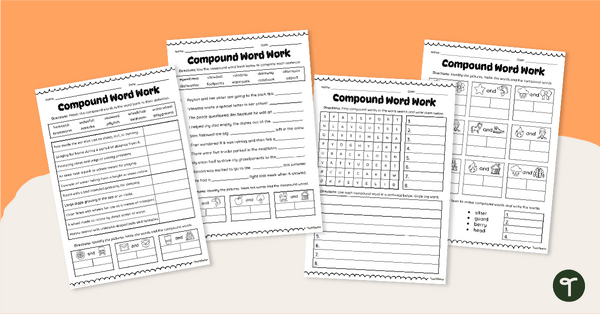
Boost your students' vocabulary knowledge with printable Compound Word Worksheets for upper years.
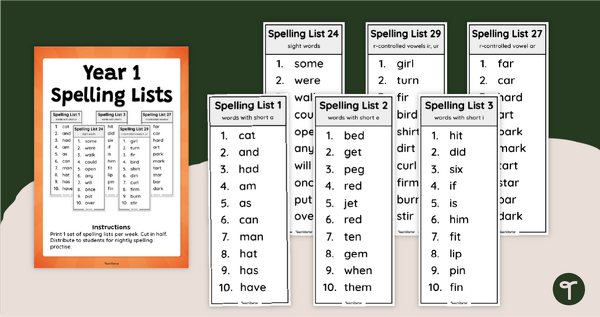
Create successful spellers with printable weekly spelling word lists for Year 1.
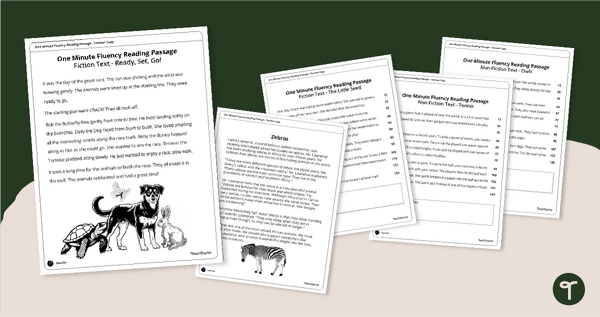
Assess student fluency with a printable pack of reading fluency passages for Year 3.
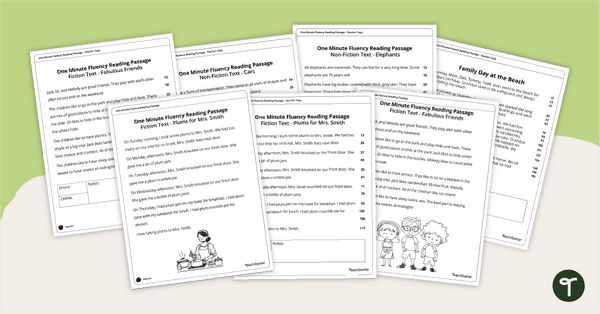
Download a printable pack of Year 2 reading fluency passages with a printable ORF assessment pack.
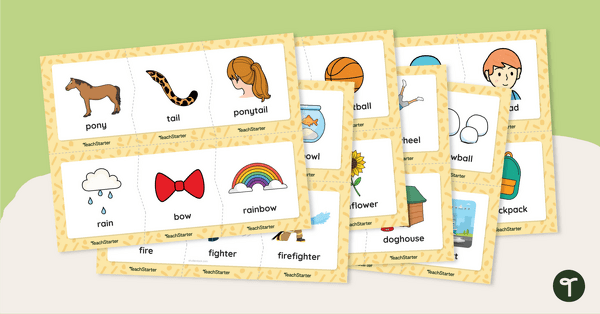
Practise building compound words with this set of 20 puzzles, each with three pieces—two smaller words and the compound word they form.
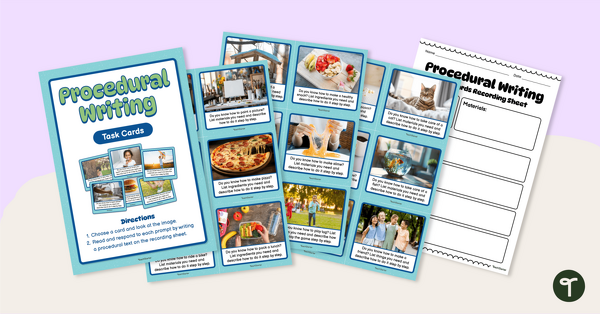
Need some procedural writing ideas? Download these task cards to use as a writing activity during your procedure writing unit.
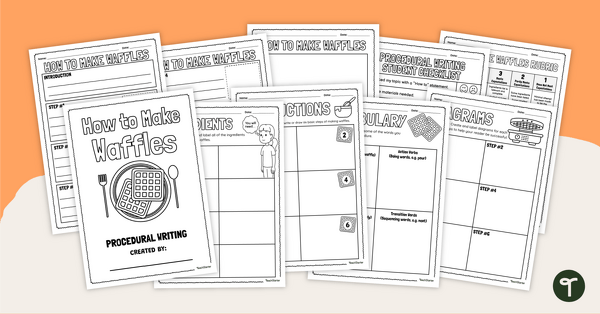
Get your students writing high-quality procedure texts with this fun “How to Make Waffles” procedural writing project.
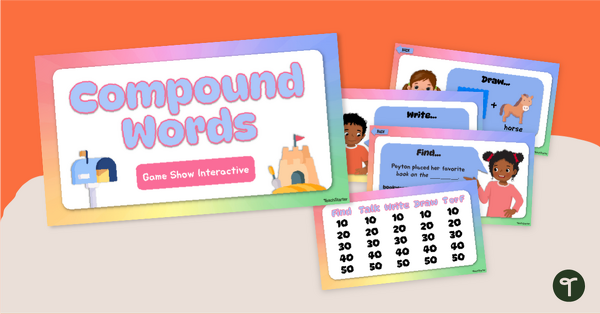
Turn your compound word lessons into a fun game with an interactive Compound Word Game Show activity!
0 Comments
Write a review to help other teachers and parents like yourself. If you'd like to request a change to this resource, or report an error, select the corresponding tab above.